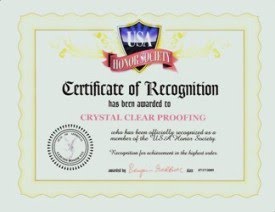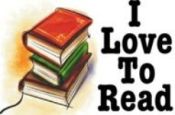These similar-looking words below have dissimilar meanings. Make sure you’re using the correct one in each pair.
1. Amused/bemused: To be amused is to be entertained; to be bemused is to be confused.
2. Appraise/apprise: To appraise is to evaluate; to apprise is to inform.
3. Ascribe/subscribe: To ascribe is to attach an idea to a source; to subscribe is to hold belief in an idea.
4. Attain/obtain: To attain is to reach; to obtain is to acquire.
5. Barter/haggle: To barter is to trade; to haggle is to negotiate.
6. Born/borne: To be born is to be brought forth; to be borne is to be carried along.
7. Borrow/loan: To borrow is to receive something for temporary use; to loan is to provide something on those terms.
8. Careen/career: To careen is to lean over to one side or to sway; to career is to hurry carelessly—not to be confused with the alternate meaning of a chosen pursuit, a profession or occupation. (Additionally, to 'carom' is to ricochet.)
9. Censor/censure: To censor is to ban; to censure is to reprimand.
10. Criticize/critique: To criticize is to judge harshly or in a negative manner; to critique is to evaluate.
11. Denigrate/deprecate: To denigrate is to defame or belittle; to deprecate is to disapprove or de-emphasize (but can also, like denigrate, mean to disparage).
12. Differ/vary: To differ is to disagree or to be distinct from; to vary is to change (although differ can also refer to 'variation').
13. Espouse/expound: To espouse is to support; to expound means to state, explain, or defend (which is also distinct from the phrase “expand on,” which means to provide additional or digressive details).
14. Rebut/refute: To rebut is to argue in response to another argument; to refute is to deny an argument.
15. Wangle/wrangle: To wangle is to obtain by underhanded means; to wrangle is to wrestle.
Source: Daily Writing Tips
Tuesday, November 15, 2011
Wednesday, November 2, 2011
The Apostrophe with Numbers, Letters and Abbreviations
Rule: The plurals for capital letters and numbers used as nouns are not formed with apostrophes.
Example: She consulted with three M.D.s.
BUT
Example: She went to three M.D.s’ offices.
The apostrophe is needed here to show plural possessive.
Example: She learned her ABCs.
Example: the 1990s
NOT
the 1990’s
Example: the ’90s or the mid-’70s
NOT
the ’90’s or the mid-’70’s
Example: She learned her times tables for 6s and 7s.
Exception: Use apostrophes with capital letters and numbers when the meaning would be unclear otherwise.
Example: Please dot your I’s.
You don’t mean Is.
Example: Ted could not distinguish between his 6’s and 0’s.
You don’t mean Os.
Source: Grammarbook
Wednesday, August 17, 2011
Hyphenating Between Words
Many of us get confused about when to hyphenate between words. For example, should you write nearly-extinct wolves or nearly extinct wolves?
Nearly answers how close to extinct wolves are/were. Adverbs answer the questions how, where, and when.
Adverbs do not get attached to adjectives with hyphens. Therefore, the adverb nearly, like most "ly" words, does not get hyphenated.
Only compound adjectives—adjectives that act as one idea with other adjectives—get hyphenated in front of nouns.
Example: The crowd threw out the barely edible cake.
The word barely is an adverb answering how edible the cake was.
Example: newly diagnosed disease
The word newly is an adverb answering when.
Example: We live in a two-story building.
The word two does not answer how, when, or where. It is acting as one idea with story to describe the noun building. Therefore, two-story is a compound adjective requiring a hyphen.
Example: The announcer offered a blow-by-blow description of the boxers' punches.
Blow-by-blow is acting as one idea. Therefore, it is a compound adjective.
Example: Our building is two stories.
When the description follows the noun, do not hyphenate.

Source: Grammarbook
Nearly answers how close to extinct wolves are/were. Adverbs answer the questions how, where, and when.
Adverbs do not get attached to adjectives with hyphens. Therefore, the adverb nearly, like most "ly" words, does not get hyphenated.
Only compound adjectives—adjectives that act as one idea with other adjectives—get hyphenated in front of nouns.
Example: The crowd threw out the barely edible cake.
The word barely is an adverb answering how edible the cake was.
Example: newly diagnosed disease
The word newly is an adverb answering when.
Example: We live in a two-story building.
The word two does not answer how, when, or where. It is acting as one idea with story to describe the noun building. Therefore, two-story is a compound adjective requiring a hyphen.
Example: The announcer offered a blow-by-blow description of the boxers' punches.
Blow-by-blow is acting as one idea. Therefore, it is a compound adjective.
Example: Our building is two stories.
When the description follows the noun, do not hyphenate.
Source: Grammarbook
Wednesday, August 3, 2011
Commas Before "and" in a Series
In American English usage, a comma should precede and with three or more items in a series.
Example: I would like to order a salad, a sandwich, and dessert.
Newspapers and magazines do not generally use this rule, as print space is too valuable to use on what might be considered extraneous punctuation. However, print publications will use the final comma before and if it is needed to avoid confusion.
Example: Her $10 million estate was split among her husband, daughter, son, and nephew.
Omitting the comma after son would have led the reader to believe that the son and nephew had to split one-third of the estate (each receiving one-sixth), rather than understanding that each relative received one-fourth of the estate.

Source: Grammarbook
Example: I would like to order a salad, a sandwich, and dessert.
Newspapers and magazines do not generally use this rule, as print space is too valuable to use on what might be considered extraneous punctuation. However, print publications will use the final comma before and if it is needed to avoid confusion.
Example: Her $10 million estate was split among her husband, daughter, son, and nephew.
Omitting the comma after son would have led the reader to believe that the son and nephew had to split one-third of the estate (each receiving one-sixth), rather than understanding that each relative received one-fourth of the estate.
Source: Grammarbook
Wednesday, June 29, 2011
Parallel Construction
Sentences and lists are awkward when they contain a series of items with inconsistent grammatical structure. But as your reader scans through a series of items with parallel grammatical structure, the relationships between different items of information become clear. Here’s an example:
Which of the two sentences below is easier to follow?
At the February meeting we will hold a discussion of the new health plan, whether to revise the procedures manual, and then a draft will be developed of the early retirement policy.
At the February meeting, we will discuss the new health plan, decide whether to revise the procedures manual, and draft an early retirement policy.
In the second example, the parallel verb tenses saved space and helped us grasp the ideas immediately. To help your writing flow smoothly and make sense, use the same format for items you present in a series.

HAPPY INDEPENDENCE DAY!
Source: Grammarbook
Which of the two sentences below is easier to follow?
At the February meeting we will hold a discussion of the new health plan, whether to revise the procedures manual, and then a draft will be developed of the early retirement policy.
At the February meeting, we will discuss the new health plan, decide whether to revise the procedures manual, and draft an early retirement policy.
In the second example, the parallel verb tenses saved space and helped us grasp the ideas immediately. To help your writing flow smoothly and make sense, use the same format for items you present in a series.
HAPPY INDEPENDENCE DAY!
Source: Grammarbook
Wednesday, June 15, 2011
Demonstrative Adjectives
This/That/These/Those – Demonstrative Adjectives
The demonstrative adjectives—this/that/these/those—tell us where an object is located and how many objects there are.
This/That
This and that are used to point to one object. This points to something nearby while that points to something “over there.”
Examples:
This dog is mine.
This is mine.
That dog is hers.
That is hers.
These/Those
These and those refer to more than one object. These points to things nearby while those points to things “over there.”
Examples:
These babies have been smiling for a while.
These are mine.
Those babies in the nursery have been crying for hours.
Those are yours.

Source: Grammarbook
The demonstrative adjectives—this/that/these/those—tell us where an object is located and how many objects there are.
This/That
This and that are used to point to one object. This points to something nearby while that points to something “over there.”
Examples:
This dog is mine.
This is mine.
That dog is hers.
That is hers.
These/Those
These and those refer to more than one object. These points to things nearby while those points to things “over there.”
Examples:
These babies have been smiling for a while.
These are mine.
Those babies in the nursery have been crying for hours.
Those are yours.
Source: Grammarbook
Labels:
Adjectives,
Demonstative Adjectives,
That,
These,
This,
Those
Tuesday, May 3, 2011
Happy Mother's Day or Happy Mothers' Day?
Wednesday, April 13, 2011
The Impotence of Proofreading
Source: YouTube
Wednesday, March 30, 2011
You've Got "E-mail" or You've Got "Email"?
Last week, the editors of the Associated Press Stylebook created a stir by announcing a change in their recommended spelling: "e-mail" is now "email."
The social media website Mashable implied that the change is long overdue, running the story with the headline "AP Stylebook finally changes 'e-mail' to 'email.'"
On the other hand, the New York Times announced that they'll stick with "e-mail." What this shows is that using a hyphen in "e-mail" is a style choice, and Mashable is more permissive than the Associated Press, which is more permissive than the New York Times when it comes to language change.
When the AP Stylebook editors were asked why they made the change, they said most of their writers already turn in articles with the "email" spelling, and copy editors found "e-mail" increasingly difficult to police. They emphasized that they don't consider themselves to be on the leading edge of language change; instead, they "bow to common usage."
This creates yet another "writer/author preference" as to which version to use. Just remember to be consistent!
Source: GrammarGirl

HAPPY Spring...and
Have a HAPPY Day!
The social media website Mashable implied that the change is long overdue, running the story with the headline "AP Stylebook finally changes 'e-mail' to 'email.'"
On the other hand, the New York Times announced that they'll stick with "e-mail." What this shows is that using a hyphen in "e-mail" is a style choice, and Mashable is more permissive than the Associated Press, which is more permissive than the New York Times when it comes to language change.
When the AP Stylebook editors were asked why they made the change, they said most of their writers already turn in articles with the "email" spelling, and copy editors found "e-mail" increasingly difficult to police. They emphasized that they don't consider themselves to be on the leading edge of language change; instead, they "bow to common usage."
This creates yet another "writer/author preference" as to which version to use. Just remember to be consistent!
Source: GrammarGirl
Have a HAPPY Day!
Labels:
E-mail,
E-mail or Email Grammar,
Editing,
Email,
Spelling
Wednesday, March 23, 2011
Assure, Ensure and Insure
Assure, ensure, and insure can be confusing. Here are the definitions along with some examples to help clarify the distinctions for you.
Assure: to promise or say with confidence
Example: Let me assure you that I will be at the meeting at noon.
Ensure: to make sure something will/won’t happen
Example: To ensure my family’s safety, I have installed an alarm system.
Insure: to issue an insurance policy
Example: I will insure my home with additional fire and flood policies.

Source: Grammarbook
Assure: to promise or say with confidence
Example: Let me assure you that I will be at the meeting at noon.
Ensure: to make sure something will/won’t happen
Example: To ensure my family’s safety, I have installed an alarm system.
Insure: to issue an insurance policy
Example: I will insure my home with additional fire and flood policies.
Source: Grammarbook
Labels:
"Ensure and Insure",
Assure,
Ensure,
Insure
Wednesday, March 9, 2011
Happy "Words Matter Week!"
It's hard to believe it's been an entire year since we last recognized and celebrated Words Matter Week! This is a day of great importance no only to those of us working in the writing, editing or publishing professions, but to everyone. If words didn't matter, we'd all be reading material with misspellings, grammar and punctuation faux paus, poor structure — and I shudder to think what syntax would be like! The importance of words and the proper use of then is important, but without proper syntax, much of what we'd be reading simply wouldn't make sense.
Take an extra moment during this week to be grateful for the references you use in your writing, and (if applicable) the proofreader or editor who knows words, punctuation, grammar, syntax — and how to make your work shine with the clarity of a diamond!
Wednesday, March 2, 2011
Quotations Within Quotations
Almost all of us have found ourselves confused with double and single quotation marks. When do we use single quotes? Where does the punctuation go with single quotes? With just a few rules and examples, you will feel surer about your decisions.
Rule: Use single quotation marks inside double quotation marks when you have a quotation within a quotation.
Example: Bobbi said, “Delia said, ‘This will never work.’”
Notice that what Delia said was enclosed in single quotes. Notice also that the period was placed inside both the single and the double quotation marks.
The American rule is that periods always go inside all quotation marks.
Example: Bobbi said, “I read the article, ‘A Poor Woman’s Journey.’”
Rule: Question marks and quotation marks, unlike periods, follow logic with their placement. If a quote inside a quote is a question or exclamation, place the question mark or exclamation mark inside the single quotes.
Examples: Bobbi said, “Delia asked, ‘Will this remote control work on my TV?’
”Bobbi said, “Delia shouted, ‘Get your hands off me!’”
Rule: If the question is inside the double quotes, place the question mark between the single and double quotes.
Examples: Bobbi asked, “Did Delia say, ‘This will never work’?”
(Because you will rarely need an exclamation mark within the double quotes and not within the single quotes, there is little sense discussing this.)
Rule: In the above three examples, only one ending punctuation mark was used with the quotation marks. The rule is that the “stronger” mark wins. Question marks and quotation marks are considered stronger than the period. Period!
Source: Grammarbook
Wednesday, February 16, 2011
Capitalization After Colons
Have you run across the situation where one sentence ending with a colon is followed by another sentence? Do you capitalize the first word of that second sentence? Why would you use a colon between the two sentences rather than a period or a semicolon?
Rule for colons between sentences: Use a colon instead of a semicolon or a period between two sentences when the second sentence explains or illustrates something in the first sentence.
Capitalization rule with sentences after colons: If only one sentence follows the colon, do not capitalize the first word of the new sentence. If two or more sentences follow the colon, capitalize the first word of each sentence following.
Example: One of my favorite novels is by Kurt Vonnegut: his novel, Slaughterhouse-Five, is often funny, yet packs an emotional punch.
Example: Garlic is used generously in Italian dishes: It greatly enhances the flavor of pasta. Garlic also enhances the flavor of lasagna, one of my favorite dishes.
Now, should you capitalize the first word after a colon if it begins a list rather than a new sentence?
Rule for capitalizing with lists after colons: Do not capitalize the first word of a list after a colon.
Example: I like the following Italian dishes: pasta primavera, eggplant Parmesan, and lasagna. (Parmesan is capitalized because it comes from the Italian city of Parma.)
Source: Grammarbook
Labels:
Capitalization After Colons,
Colons
Wednesday, January 12, 2011
Capitalization of Job Titles
With capitalization of job titles, there are rules and then there is the “rule.” The rules are based on some precedent while the “rule” is based on ego. Let’s go over the rules that have precedent first.
Rule: Capitalize job titles immediately preceding the name when used as part of the name.
Example: We asked Chairperson Leong to join us at the meeting.
Rule: Capitalize job titles immediately following the name when the word the does not appear in front of the job title.
Examples: Ms. Leong, Chairperson, will join us at the meeting.
Ms. Leong, Chair, will join us at the meeting.
Mr. Hanson, Editorial Advisor for The Independent Journal, helped draft the article.
Rule: When the appears in front of the job title, do not capitalize.
Examples: Mr. Hanson, the editorial advisor, helped draft the article.
The chairperson, Sarah Leong, will join us at the meeting.
Mr. Cortez was the senior managing director of the Baskin Group.
Rule: Capitalize titles in signature lines.
Examples: Sarah Leong, Chairperson
Craig Hanson, Editorial Advisor
Rule: Do not capitalize titles when used descriptively.
Example: Ms. Leong, who will chair the meeting, is always on time.
“Rule”: The “ego rule” is that you may have to ignore the above rules in real life. If someone in your office (as in your boss) wants his or her title capitalized in all situations, then do so. Generally, the higher in rank someone is in an organization, the more likely his/her title will be capitalized at all times.
Source: Grammarbook

Rule: Capitalize job titles immediately preceding the name when used as part of the name.
Example: We asked Chairperson Leong to join us at the meeting.
Rule: Capitalize job titles immediately following the name when the word the does not appear in front of the job title.
Examples: Ms. Leong, Chairperson, will join us at the meeting.
Ms. Leong, Chair, will join us at the meeting.
Mr. Hanson, Editorial Advisor for The Independent Journal, helped draft the article.
Rule: When the appears in front of the job title, do not capitalize.
Examples: Mr. Hanson, the editorial advisor, helped draft the article.
The chairperson, Sarah Leong, will join us at the meeting.
Mr. Cortez was the senior managing director of the Baskin Group.
Rule: Capitalize titles in signature lines.
Examples: Sarah Leong, Chairperson
Craig Hanson, Editorial Advisor
Rule: Do not capitalize titles when used descriptively.
Example: Ms. Leong, who will chair the meeting, is always on time.
“Rule”: The “ego rule” is that you may have to ignore the above rules in real life. If someone in your office (as in your boss) wants his or her title capitalized in all situations, then do so. Generally, the higher in rank someone is in an organization, the more likely his/her title will be capitalized at all times.
Source: Grammarbook
Labels:
Capitalization of Job Titles,
Job Titles
Subscribe to:
Posts (Atom)





















































